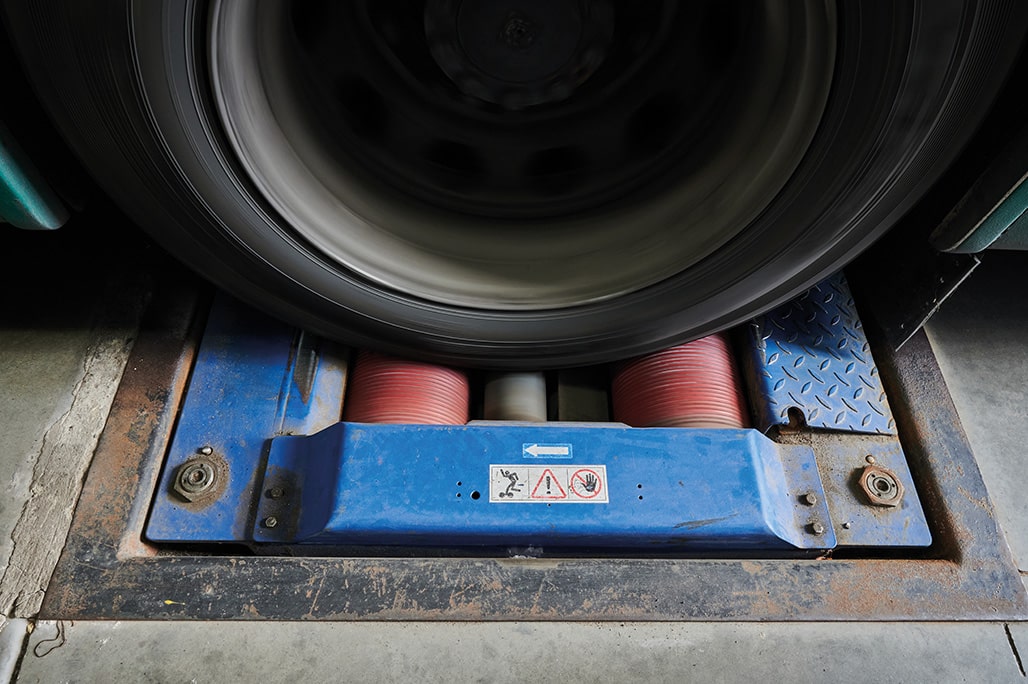Maintenance problems and a collision with a car has resulted in the revocation of the three-vehicle national licence held by Homers Travel
Continuing maintenance problems and a collision with a car after a vehicle’s brakes locked up has resulted in the revocation of the three-vehicle national licence held by Wolverhampton-based Homers Travel, and the disqualification of the company and sole Director Robert Gibson from holding or obtaining an O-Licence for 12 months by Deputy Traffic Commissioner (DTC) Nick Denton.
The DTC also disqualified Mr Gibson from acting as a Transport Manager (TM) for a similar period.
In October 2019, the DTC issued a warning following an unsatisfactory maintenance investigation. Mr Gibson gave a number of assurances and agreed to an undertaking to have vehicles roller brake tested at least every eight weeks.
The company was called to a Public Inquiry following a further unsatisfactory maintenance investigation in February.
Mr Gibson said that he had been having “a lot of hassle” with his previous maintenance provider as it had proved unfit for the task. He accepted that he had taken his eye off the ball as far as the roller brake test undertaking was concerned.
Since February 2022 he had engaged a new maintenance contractor who was much more satisfactory. He had been unaware of the duty to report collisions to DVSA. If his licence survived, he would go on a TM Certificate of Professional Competence (CPC) refresher course, would have roller brake tests carried out at the promised intervals, and would arrange for an independent audit to be carried out. He was determined to get everything right from now on. He hoped to be able to apply for an increased number of discs in the near future.
Financial evidence was heard in private.
In his decision, the DTC said that the company lacked the required financial standing to support three vehicles and had done so for many months. Among prohibitions that had been issued to its vehicles was an immediate S-marked prohibition for a badly worn tyre and a badly deteriorated steerage linkage dust cover.
The fact that the vehicle had been given a safety inspection only three days before did not fill him with confidence that the new maintenance contractor was much better than the old. The company had failed to honour its promise that vehicles would be given safety inspections every four weeks. It had failed to ensure that drivers reported defects in writing. Drivers appeared to be simply ticking boxes and driving off, missing obvious defects.
Despite Mr Gibson’s assurances in 2019 that he was on top of the problem, there had been no discernible improvement at all, despite evidence that drivers were skimping on checks that had long been staring him in the face. Safety inspection reports continued to be littered with defects which were obviously driver detectable. The company had failed to fulfil its undertaking, given specifically as a result of the unsatisfactory maintenance investigation in 2019, to have roller brake tests carried out at least every eight weeks. Generally, brakes were going wholly untested for long periods of time. It was of concern therefore to find that faulty brakes were the cause of the collision on 28 May 2022. A 33% MoT failure rate, together with the long lists of defects at many of the periodic safety inspections, showed that vehicles were frequently being operated in an unroadworthy condition.
Mr Gibson had been given every chance to improve compliance, but the picture even today was one of chaotic and ineffective management, with unroadworthy vehicles being driven by drivers too lazy to carry out proper checks of their vehicles. Mr Gibson as TM had failed to carry out the duties and responsibilities expected of the job title to anything like the required standard.



























